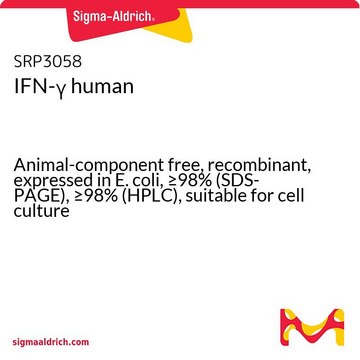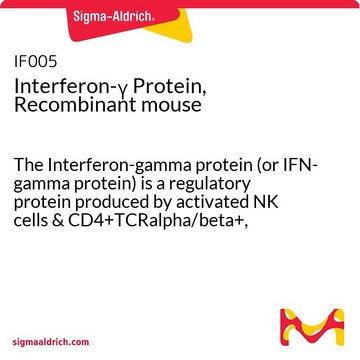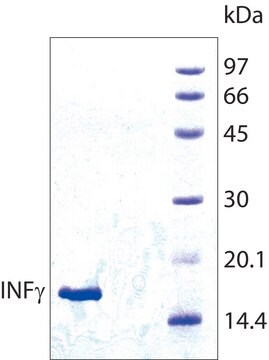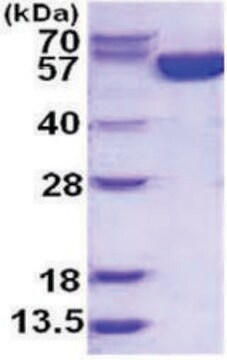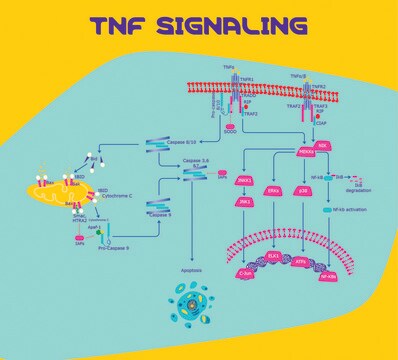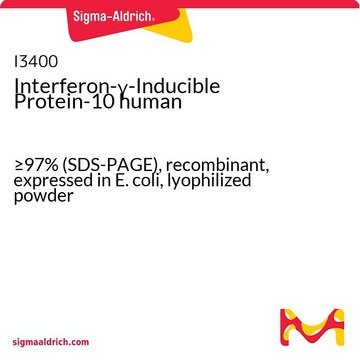I17001
Interferon-γ human
IFN-gamma, recombinant, expressed in HEK 293 cells, suitable for cell culture, endotoxin tested
Synonyme(s) :
IFN-γ
About This Item
Produits recommandés
Produit recombinant
expressed in HEK 293 cells
Niveau de qualité
Pureté
≥98% (SDS-PAGE)
Forme
lyophilized powder
Puissance
≤0.250 ng/mL In Viral Resistance Assay ED50
Poids mol.
16 kDa (glycosylated)
Technique(s)
cell culture | mammalian: suitable
Adéquation
endotoxin tested
Température de stockage
−20°C
Vous recherchez des produits similaires ? Visite Guide de comparaison des produits
Description générale
Application
Actions biochimiques/physiologiques
Interferon-γ (IFN-γ) plays an essential role in function of virtually all immune cells and both innate and adaptive immune responses. IFN-γ exhibits various biological effects, such as antiviral activity, inhibition of cell or tumor growth and promotion of terminal differentiation of B cells into immunoglobulin-producing cells. This cytokine also activates macrophages, increases cytotoxicity of natural killer cells and promotes T cell cytotoxicity. In addition to antiviral activity, recombinant human IFN-γ is a potent modulator of immune responses and modifies cellular processes.
Séquence
Forme physique
Remarque sur l'analyse
Code de la classe de stockage
11 - Combustible Solids
Classe de danger pour l'eau (WGK)
WGK 2
Point d'éclair (°F)
Not applicable
Point d'éclair (°C)
Not applicable
Certificats d'analyse (COA)
Recherchez un Certificats d'analyse (COA) en saisissant le numéro de lot du produit. Les numéros de lot figurent sur l'étiquette du produit après les mots "Lot" ou "Batch".
Déjà en possession de ce produit ?
Retrouvez la documentation relative aux produits que vous avez récemment achetés dans la Bibliothèque de documents.
Les clients ont également consulté
Notre équipe de scientifiques dispose d'une expérience dans tous les secteurs de la recherche, notamment en sciences de la vie, science des matériaux, synthèse chimique, chromatographie, analyse et dans de nombreux autres domaines..
Contacter notre Service technique